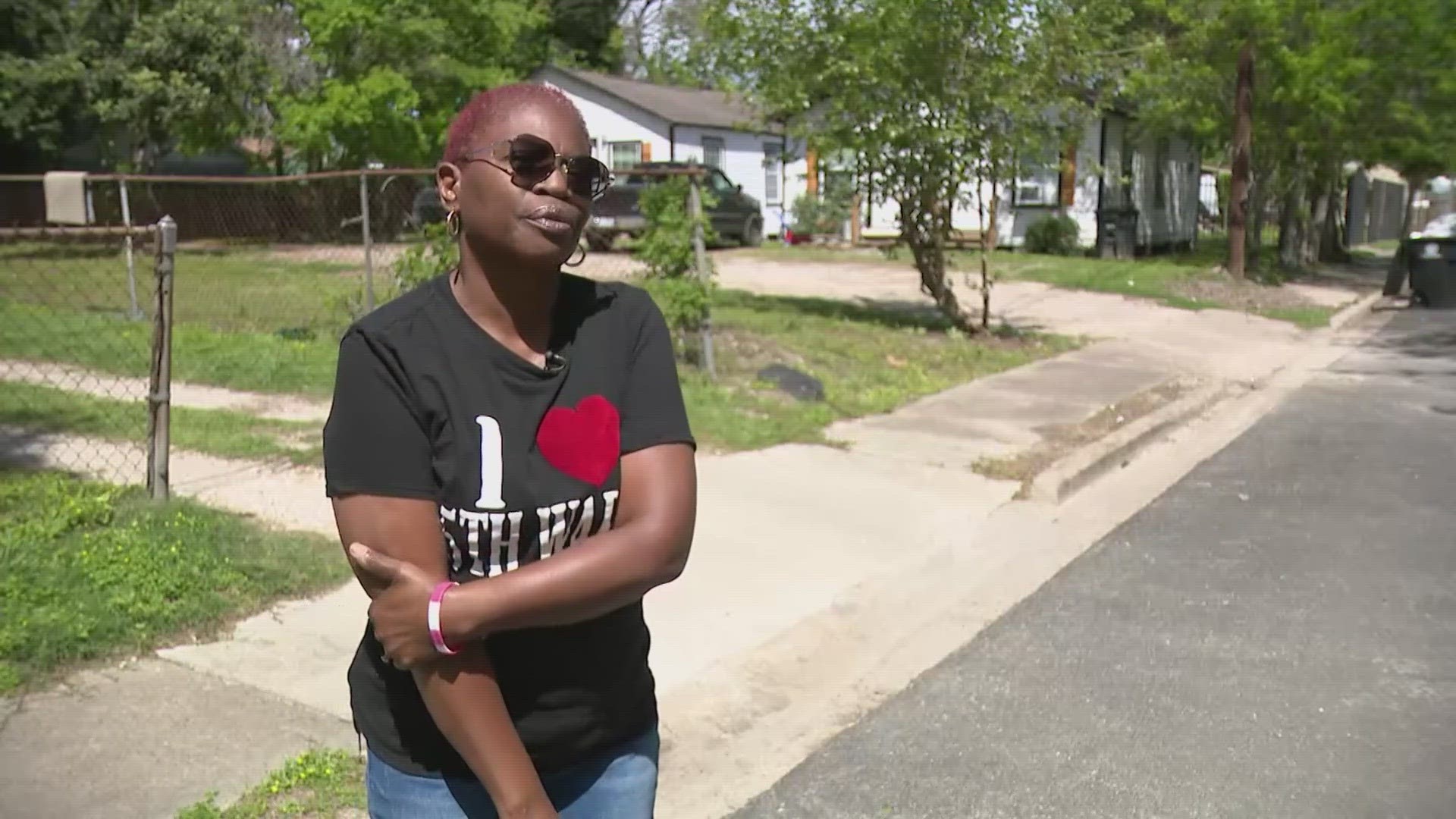HOUSTON — The Environmental Protection Agency has released its first wave of results from vapor testing near a Fifth Ward cancer cluster.
The agency ordered Union Pacific to test for dangerous levels of chemicals in homes and businesses built over creosote-contaminated groundwater.
Neighbors blame a nearby railyard, where the wood preservative creosote, which the EPA labels a probable carcinogen, was used to treat railroad ties for decades until 1984.
Decades later, the state health department found cancer clusters nearby.
Now the EPA is working to figure out the extent of contamination.
“I have gotten call after call saying, ‘Hey, it’s happening,’” Sandra Edwards said.
She lives across the street from the railyard and lost her father to cancer. Her home is in the testing zone.
“We’re moving in the right direction," Edwards told us.
Crews sampled air under the ground surface, in shallow groundwater, sanitary sewers and storm sewers near the railyard.
Out of samples from 51 sites processed so far, 17 had levels of all chemicals above EPA screening levels, and four showed creosote-related chemicals above EPA screening levels.
“They discovered what we’ve been knowing, and now it’s out there,” Edwards said.
Lab results from samples taken at 66 locations during Phase 1 are still pending.
“Transparency and ongoing communication with the public remain paramount as we follow the EPA-approved testing plan,” Toni Harrison, a spokesperson and community liaison for Union Pacific, said. “We will continue working closely with regulators and subject matter experts as we prepare to conduct the next, most extensive, phase of testing in the Fifth Ward to date.”
The EPA will continue vapor and soil testing through the summer and then put out a risk report this fall.
Edwards says more of her neighbors have been giving Union Pacific consent to test soil on their property.
“It’s just more people coming out, one, to have it done now that they see that things are moving in the right direction,” Edwards said. “So, we just want to keep it going that way. We want to keep it going in the right direction.”
An EPA spokesperson told KHOU the agency will host a community meeting in late April “to go over the available data and answer questions.”

